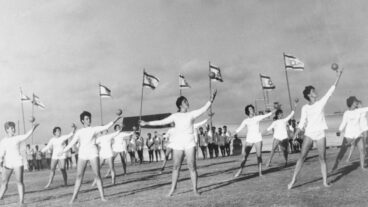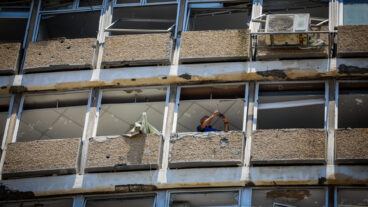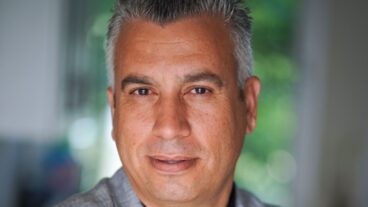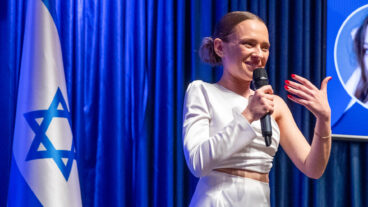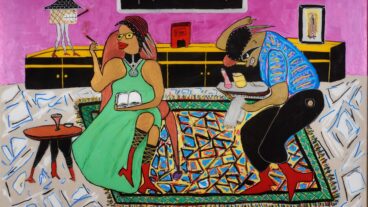Sigall Horovitz: I knew I wanted to make a difference.Sigall Horovitz certainly wasn’t looking for a cushy number when she set out to become a lawyer. Rather than head off for the more lucrative areas of litigation, such as divorce settlements and company law, the 26-year-old Israeli was determined to make a worthwhile contribution to society in her professional capacity.
“I knew I wanted to do something about international crimes against humanity when I was studying for my bachelor’s degree in Israel,” she told ISRAEL21c. “I knew I wanted to make a difference.”
Horovitz has been striving to right wrongs ever since. For the last nine months she has been stationed in Arusha, Tanzania where she is working as associate legal officer to the President of the International Criminal Tribunal for Rwanda. Prior to that, she did a stint at the Office of Legal Affairs at the UN headquarters in New York, helping to set up a war crimes tribunal on Cambodia, and followed that with a year in the office of the prosecutor at the Special Court for Sierra Leone.
In fact, Horovitz has been involved in legal work relating to war crimes and crimes against humanity throughout her professional life to date. On graduating from law school in Tel Aviv she joined Israel’s international department at the State Attorney’s office in Jerusalem and worked on a government commission that was looking into the fate of Jews who disappeared during the military regime in Argentina.
What, then, prompted a young woman, fresh out of the protective college environment, to tackle legal matters that involve investigating horrific acts committed against innocent people around the world?
“I got interested in the field when there was a court case in Brussels brought against [Israeli Prime Minister Ariel] Sharon, about his alleged role in the Sabra and Shatilla massacre [during the Lebanese war]. Then I began to get active in war crimes litigation.”
Her specialization term completed, Horovitz headed for Columbia University in New York to take a master’s degree in international criminal law and, from there, it was just one more short step to the UN headquarters where she kicked off her workplace experience.
Horovitz feels being an Israeli and a Jew have made a telling contribution to her career choice.
“As an Israeli I think I am sensitive to this area, and most of my grandparents’ families died in the Holocaust. So I have been aware of such crimes since my early childhood. What happened in Rwanda, to my mind, is very similar to what the Nazis did during the Second World War. What they did in Rwanda was ethnic cleansing. I am the only Israeli on the tribunal staff and I feel the connection with the Holocaust very strongly.”
On occasion, Horovitz says her work strikes a raw nerve or two, but adds that her personal and collective past provides her with special insight into what took place in Rwanda. “Sometimes I feel doubly angry or sense the pain of those who suffered more keenly because of my familial and cultural link with the Holocaust. In some respects, I think it helps me understand the events better than others on the tribunal.”
That direct link with the evils of the Nazi regime also heightens Horovitz’s awareness that crimes against humanity are not a new development, and that they continue to be perpetrated. “In a way, it’s almost as if we, the international community, haven’t learned anything from the Holocaust,” she muses. “How could we have allowed that situation to develop in Rwanda, especially after the Holocaust? In Germany, too, war crimes trials were held.”
With that insight, then, Horovitz could be forgiven for giving up all hope of preventing such horrors repeating themselves. Nonetheless, while somewhat ambivalent on the issue, the young lawyer is far from desperate.
“Yes, it’s terrible that ethnic cleansing could happen so soon after the Holocaust but I think things are improving. There is a judicial system that investigates these acts, but that is after the crimes have taken place. However, there is the permanent international crimes tribunal, established in The Hague in 2002, to which war crimes can be directed in real time. That is supposed to act as some kind of deterrent. It’s still the early days but I think that represents important progress. I sometimes feel despondent but ground has been made in the past decade, especially since the end of the Cold War.”
From where she stands, Horovitz believes that some improvements have been achieved in investigating and, far more importantly, preventing crimes against humanity.
“I was involved in some of the interviews of people accused of committing war crimes in Sierra Leone, and heard recordings made during the hostilities there. I remember one recording in which one officer tells another that it might not be a good idea to follow orders to commit a war crime because they may have to stand trial at an international crimes tribunal after the war. That’s a new development, and it’s very encouraging.”
Horovitz also believes that real change will happen on a grass-roots level. “Progress isn’t necessarily achieved through leaders, rather mainly through ordinary people applying pressure. It”s important to get the message across that leaders cannot act with impunity. We even tried Jean Kambanda, prime minister of Rwanda at the time of the massacres. He confessed in the end. That was a big achievement.”
Nine months into her work on the International Criminal Tribunal for Rwanda, which is trying those responsible for the 1994 genocide in which at least half a million Tutsis and Hutu were killed, Horovitz doesn’t have much spare time to indulge in her favorite pastimes of mountain biking and hiking around the majestic mountains near Arusha.
“I am kept very busy. There is a lot of pressure,” she says. “The aim is to complete all the trials within three years. So far, 26 trials have been finished – that’s since 1998 – and we’ve got another 25 to do.”
When the Rwanda tribunal was established, UN Secretary General Kofi Annan described the court as “a testament to our collective determination to confront the heinous crime of genocide in a way we never have before.”
That is a sentiment with which Horovitz identifies in full. “We have our work cut out here in Tanzania but I am determined to see it all through to completion and see justice done.”




